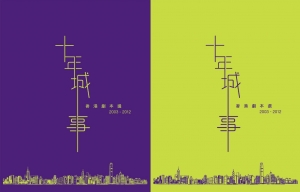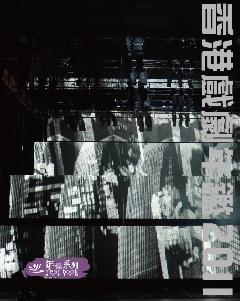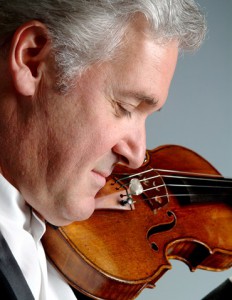According to the programme notes of Kisaeng Becomes You, the Kisaeng were ancient female Korean entertainers, similar to the Geisha in Japan, who worked to entertain kings and aristocrats. They also performed the roles of medical care and needlework. Though they were well trained in the arts of conversation, dance, music and poetry, they held the lowest rank in the society. The performance is aimed to offer a visual narrative that asks audience members to echo the lives of the Kisaeng on stage with the performers.
The performance was produced by Dean Moss, a black male artist from the US and Kim Yoon-jin, a Korean lady. The main feature of the performance was audience involvement. 3 female audience members were invited to perform on the stage. During the post-performance talk, Dean explained that the audience performance was aimed to express the Kisaeng's vulnerability which he was able to feel when reading their poems.
The first participating audience member was a white lady. She was made to dress up in a simplified version of Kisaeng traditional costumes including a wig and was taught on the stage some simple body movements, Korean dance steps and several lines of poem in English. She finally performed the whole small piece of performance under background music.
At the beginning, I could feel the vulnerability of the lady as she look puzzled when she first stepped on the stage. However, this feeling was diluted quickly as other professional actresses welcomed her warmly and swiftly gave her clear guidance. The actresses also positively encouraged the lady all the way by their smiles and appropriate body gestures. You could feel that the lady was pretty "safe" and she did not seem to be vulnerable. And surprisingly, the lady was natural and confident. She narrated the lines of poem in good pace and profound manner. She portrayed an image of a young Kiaseng who was inclined to be pessimistic yet passionate and she really touched my heart. She successfully expressed the sense of vulnerability akin to one belonged to the Kiaseng. It was amazing.
During the post-performance talk, the lady disclosed that she was a teacher / headmaster (I could not hear exactly what she said). She has probably lot of exposure on performing arts and literature in real life. No wonder she was really comfortable on the stage and could grasp the essence of the poem in such a short period of time. The situation may have been different if a less sophisticated lady was invited to perform.
In the last part of the performance, other 2 female Asian ladies (probably Hong Kongers) were invited to the stage. The scene was a girl party. The girls all enjoyed beer, snacks as well as their talking, singing and laughter. Both the 2 lady audience were also invited to enjoy beer and snacks. However, one of the lady audiences was asked to use the video camera to video tape the party scene for simultaneous projecting on the screen, which was placed high above the stage on the left hand side. The other lady audience member was asked to narrate a poem in English by following the narration of an actress.
As this lady was not a native English speaker, she was less confident and narrated the poem less fluently. My feeling was that I could not fully grasp what she said, rather than feeling that she was vulnerable. At the end, only one lady audience member was left on the stage. She was the only 1 person in the spotlight and she said, "I don't know what to do next". She was obviously embarrassed but far from being vulnerable because all the audience, (including the actresses) were looking at her with positive support. We wanted her to be successful on the stage and after all, we were anticipating end of the show any way and knew that she was safe.
But this was quite interesting, since leaving an audience member alone on the stage at the end of the performance is quite unexpected. Also, I was thinking about what I would do if I were left alone in the spotlight. I would probably say goodbye to the audience and then left the stage elegantly. Compared to the life of the Kiaseng, the lady audience on the stage clearly had their own choice of their next move. The Kiaseng could hardly escape from their vulnerable state because of various social and economic reasons, whereas the lady audience on the stage could escape their vulnerable state by making their own choice.
Apart from the above, some portions of the performance could quite well express the vulnerability of the Kisaeng. For example, at the opening, an actress did stitching into her palm in a random pattern. Although there was no blood, you could feel the pain when you saw the stretching of the skin when the needle pierced into her palm. This action took place for about few minutes and her palm was projected clearly on the screen by a close shot. Then the actresses imitated the state of being suffocated. You may image the pain of the Kisaeng.
In some parts of the performance, the actresses sometimes exaggerated their beauty and body in a sexy manner, but sometimes they walked by their 4 limbs like a strange un-known creature. Sometimes, they looked happy but sometimes, they pulled a long face. All these, when put together, painted a vivid picture of how vulnerable and miserable of the Kiaseng's life. The Kisaeng needed to pretend that they were happy when entertaining the kings and aristocrats, but in fact, they may be unhappy as they lost their dignity of a human being. However, in some parts of the performance, I sometimes got lost as the actresses appeared to be behaving quite casually without acting out any clear emotion and motive (e.g. by behaving like taking rest and chatting during rehearsals). This somehow weakened the impact as a whole.
To conclude, while you may not become the Kiaseng (e.g. by really entering their world), during the performance, you probably could think about "what if I became the participating audience on the stage"; if not, probably you could still enjoy all the unpredictable recreation of the Kiaseng's life by the creative artists.
本網站內一切內容之版權均屬國際演藝評論家協會(香港分會)及原作者所有,未經本會及/或原作者書面同意,不得轉載。









